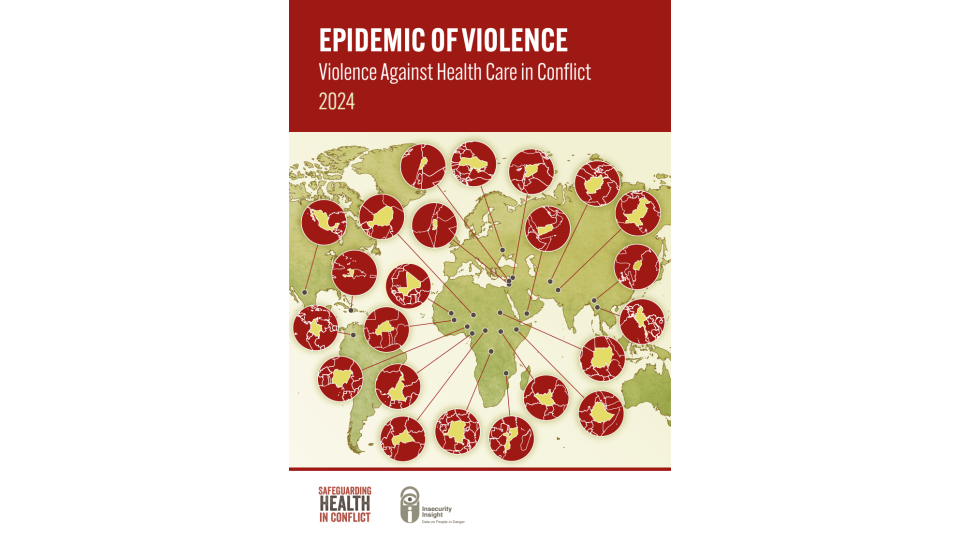New report supports ICN’s warnings that illegal attacks on health care have become normalized in conflict

The latest report from the Safeguarding Health in Conflict Coalition (SHCC), Epidemic of Violence, has identified 3,600 attacks on health care around the world in in 2024, marking a 15% increase from 2023 and a 62% rise from 2022. This is the highest number on record, despite the extensive protection enshrined in International Humanitarian Law (IHL).
Last week the International Council of Nurses (ICN), a founding member of the SHCC, raised its concerns about ongoing inhumane treatment and deadly attacks in a range of conflict zones around the world and expressed its alarm at the lack of effective action to bring such attacks to an end and enforce and uphold IHL.
ICN says the evidence in the report is shocking, including that over 1,300 of the 3,600 global attacks took place in Gaza, the highest number ever recorded in a single conflict. The report details a further 2,300 attacks, including hundreds each in Ukraine, Lebanon, Myanmar and Sudan.
ICN Chief Executive Officer Howard Catton said the new SHCC data underlines the severity of the current global situation. He described how many nurses are finding their everyday work environment suddenly transformed into a deadly battlefield from which there is no escape, with health staff and facilities increasing being shot at, bombed, blasted, and destroyed.
Mr Catton said:
“It is difficult not to conclude that this deeply troubling escalation in violence against health care workers is a consequence of the failure to investigate attacks, and respect and enforce International Humanitarian Law. The absence of accountability serves only to legitimize and normalize attacks on health care workers. If we do not put an end to this, we are on a road that is leading to the erosion of the very foundations of our collective humanity and the right to access health care and the protection of health workers simply ceasing to exist.
‘This is deeply personal for nurses and other health workers: these are our colleagues and friends. The numbers speak for themselves, with 927 health workers killed, 140 kidnapped and more than a thousand health facilities damaged or destroyed. But behind the data are the tragic stories of the individuals who have sacrificed and lost their lives serving their communities without the protection to which they are entitled. We owe it to them to act and call again for all sides in conflicts to adhere to International Humanitarian Law and ultimately, return to peace.”
In his opening address to the 78th World Health Assembly in Geneva, Switzerland, World Health Organization Director General Dr Tedros Adhanom Ghebreyesus highlighted his grave concerns for people in war-torn areas. Dr Tedros said that in 2024, WHO had coordinated the response to 51 emergencies in 89 countries where there were outbreaks, natural disasters and conflicts. It deployed and delivered urgently needed specialist medical supplies worth US$ 196 million to 80 countries, deployed 89 emergency medical teams and supported more than 67 outbreak response deployments.
He concluded his remarks saying: “In every country, the best medicine is peace, and a political solution. I hope [a] peace will prevail that can transcend generations. War is not the solution. Peace is the solution.”
The Safeguarding Health in Conflict Coalition is a group of more than 40 organizations that work to protect health workers and services threatened by war or civil unrest. It monitors attacks, strengthens universal norms of respect for the right to health, and demands accountability for perpetrators.
ICN’s Senior Policy Adviser Hoi Shan Fokeladeh was on the steering committee for the SHCC report.